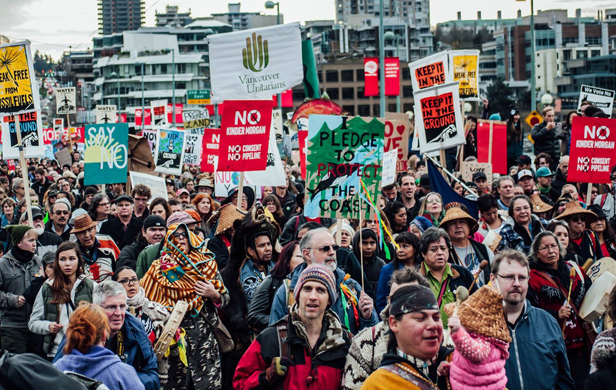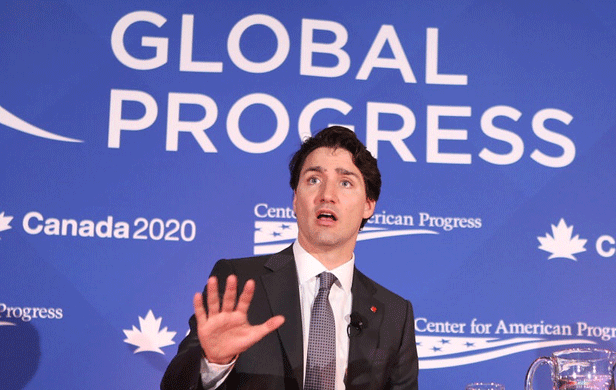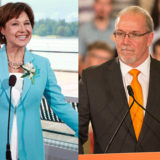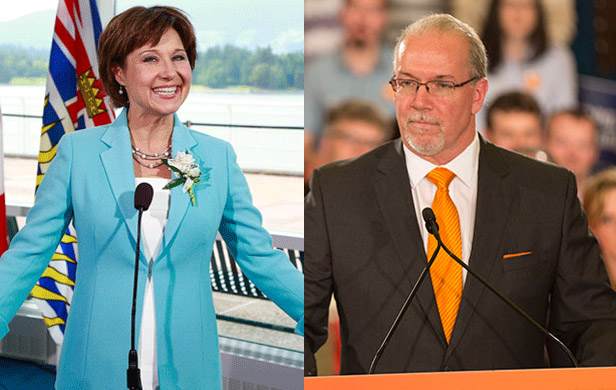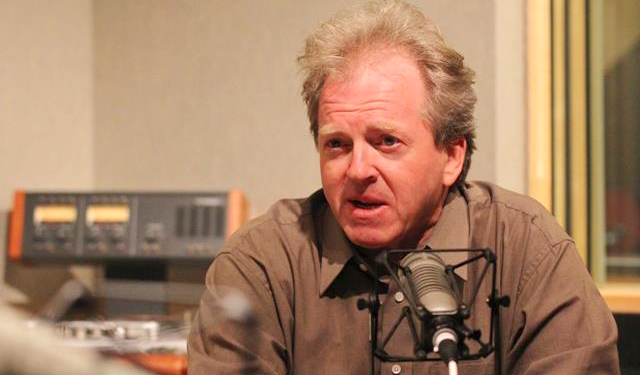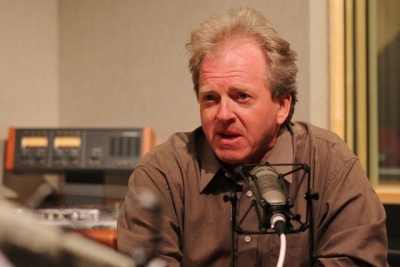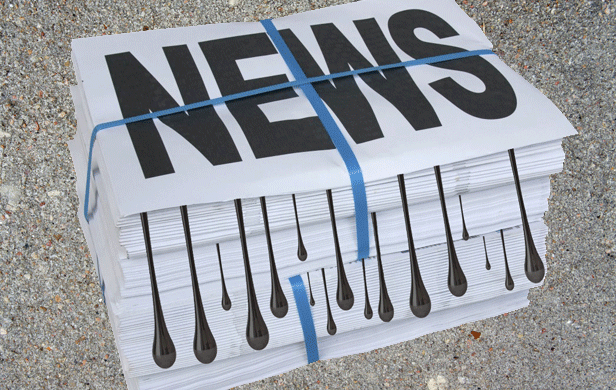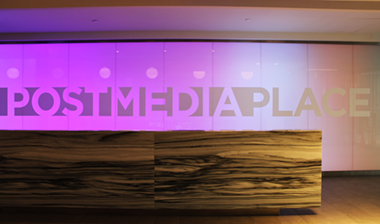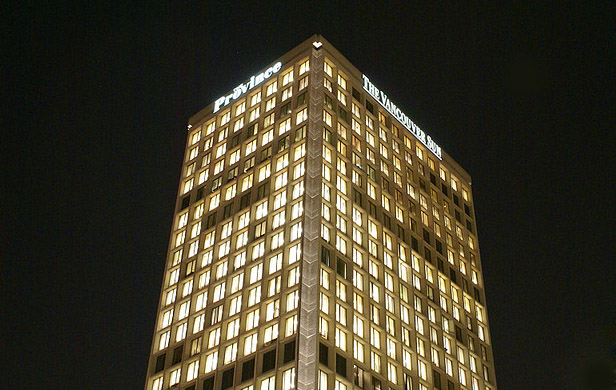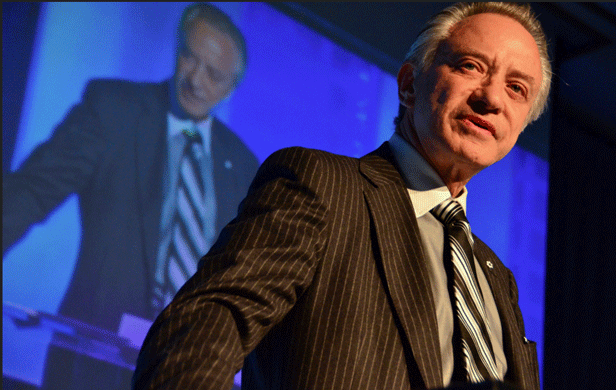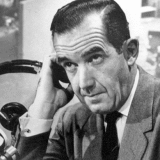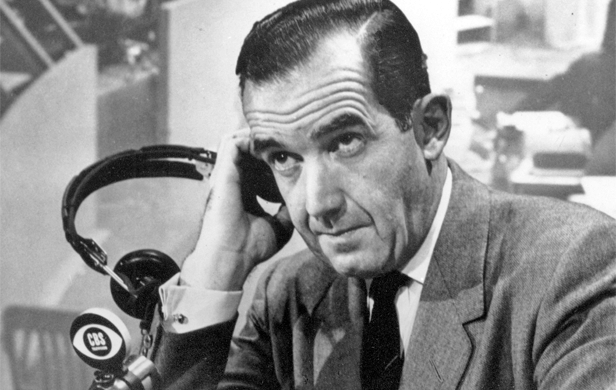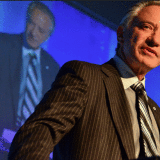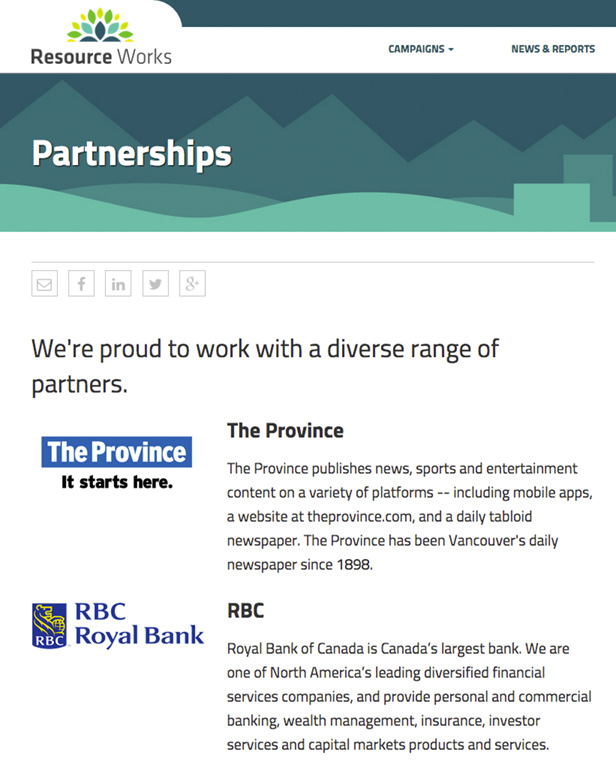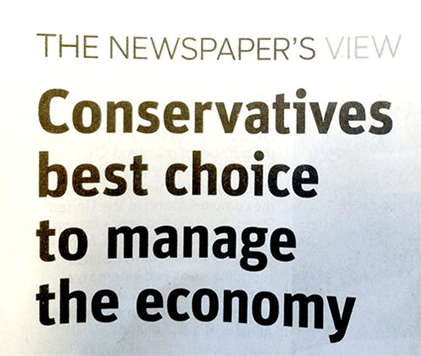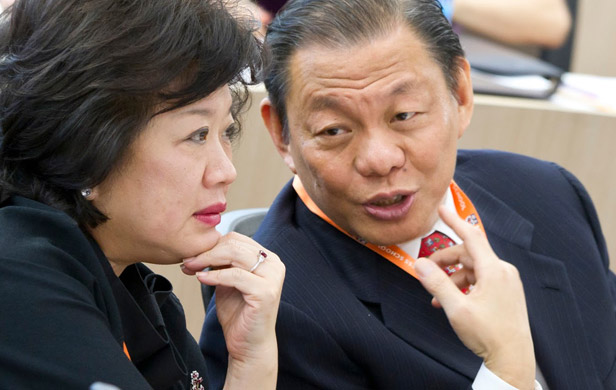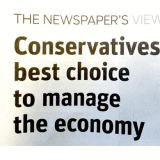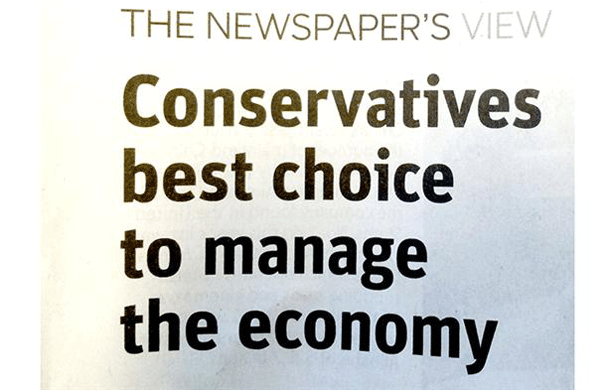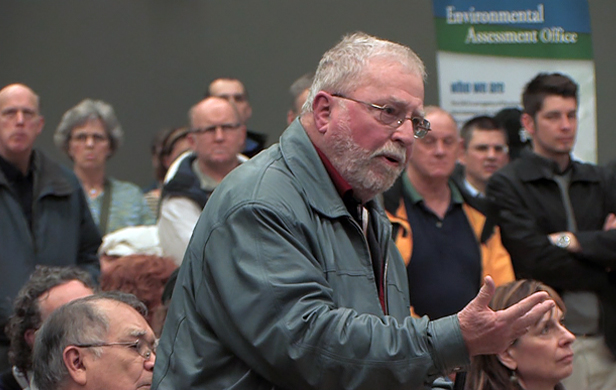
Listen to Damien Gillis and Phil Johnson on Kelowna’s AM 1150 discussing Rafe Mair’s legacy (Oct. 10):
Few people are lucky enough to work with, let alone become close friends with one of their heroes. Over the past decade, I got to ride shotgun with mine: legendary politician, broadcaster and environmental defender Rafe Mair. But on our many road trips around this great province, hosting townhall meetings on pipelines, tankers, hydropower, wild salmon and the public interest, it was me who did the driving. Rafe supplied the music – from his ipods full of jazz and old-time classics – and, of course, the stories. So many good stories. As we remember Rafe, following his passing at the age of 85, I’d like to pass on a few.
This is not meant as hagiography to gloss over Rafe’s imperfections, which he readily acknowledged were many – rather as my own recollections of the tales my friend and mentor told me and the adventures we had together.
Rafe, reinvented
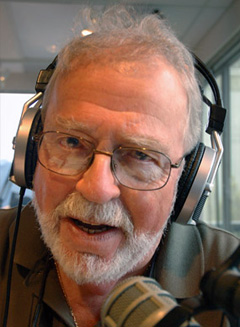 Like many British Columbians, I listened to Rafe on the radio during his hall-of-fame career, mostly at CKNW. He was my kind of guy – an intelligent, entertaining firebrand with a deep sense of justice. And a voice that seemed to cut through the bullshit spewed by our politicians and CEOs. He knew that elite world, having worked in the law and served as a prominent Socred minister, but he left it behind to go to bat for the little guy on the airwaves, which he’d do as well as any before or since. At his peak, he was the highest rated talk show host in Western Canada, with numbers that are simply unheard of today.
Like many British Columbians, I listened to Rafe on the radio during his hall-of-fame career, mostly at CKNW. He was my kind of guy – an intelligent, entertaining firebrand with a deep sense of justice. And a voice that seemed to cut through the bullshit spewed by our politicians and CEOs. He knew that elite world, having worked in the law and served as a prominent Socred minister, but he left it behind to go to bat for the little guy on the airwaves, which he’d do as well as any before or since. At his peak, he was the highest rated talk show host in Western Canada, with numbers that are simply unheard of today.
And yet, the time came when he no longer fit the mainstream media. It was their loss and the beginning of the end of their cultural relevance. Rafe always said his politics didn’t change – it was the party on the right that did. Even as Socred Environment Minister, Rafe stopped the raising of the Ross Dam on the Skagit river, halted the slaughter of wolves in the north, and placed a moratorium on uranium mining. This from a right winger…in the late ‘70s! When the BC Liberals took over from the party of the Bennetts, the right began to harden and lose touch with the public. Rafe would see journalism undergo a similar transformation.
The media of Edward R. Murrow, Woodward and Bernstein, Jack Webster, Marjorie Nichols, and Rafe Mair became consolidated, corporatized, Reaganized, sanitized. Thus, it was they who changed – not Rafe. Well, he did evolve, but not so much in terms of his values, rather in the tools he used. Which is how our roads converged.
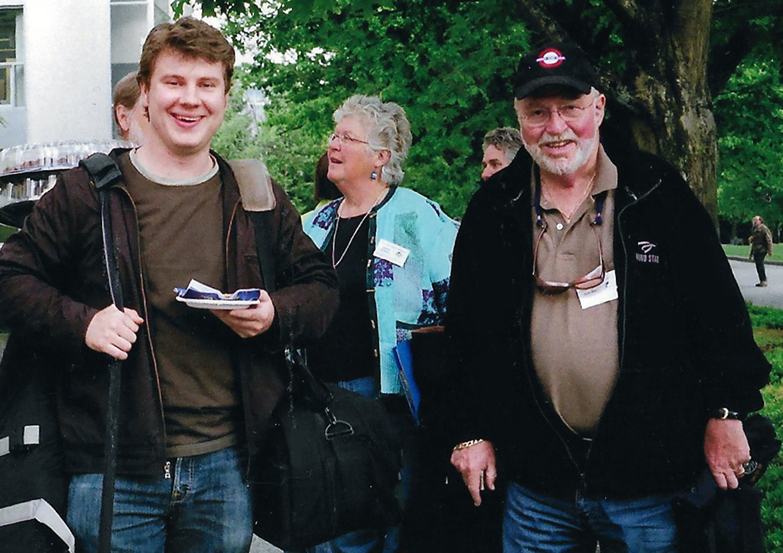
In the mid-2000s, I was a young documentary filmmaker, 48 years Rafe’s junior, taking on environmental and public interest stories. I began digging into the Campbell Government’s plan to give away the rights to BC’s waterways for hugely expensive and unnecessary private power projects, producing videos and online articles for Save Our Rivers Society. We knew we needed to take our campaign to the next level and that’s when a lightbulb went off. I’d met Rafe as he spoke passionately at rallies for farmland. He was greeted with a hero’s welcome by audiences who appreciated his wisdom and passion and were wholly unaccustomed to being in the same room as an ex-Socred minister, let alone agreeing with him. Moreover, Rafe had been an avid fly fisherman and knew many of the rivers at risk, firsthand. He was already outspoken against salmon farms and eager to reinvent himself in his post-radio career. I begged SORS’ President Tom Rankin and the board to hire Rafe as our official spokesperson, which, to their great credit, they did. (I also want to acknowledge the recent passing of another SORS alum, Charles Boylan).
And so it began.
Rafe was baptized by fire into the campaign, leading the charge in front of 1,400 people in the Pitt Meadows Secondary gymnasium. Channelling his own hero, Winston Churchill, he brought the crowd to its feet – and a private power company, which wanted to divert all five tributaries of the Pitt, to its knees. “When – not if – we win the fight for the Pitt,” Rafe proclaimed, “we must take the spirit of the Pitt right around the province and rally decent people against an indecent government…What we’re talking about here is the very soul of the province that we love. And we must fight and continue to fight until we’ve beaten the bastards and preserved Super, Natural British Columbia for all time.”
The following day, the project was dead. Tom and I shared a few high-fives. We were off to the races.
Hitting the road
We set off around the province, taking our message to every corner of BC. I would screen videos I’d made about the issue, while Rafe and others like Joe Foy and Gwen Barlee of the Wilderness Committee (also sadly deceased this year – another huge loss), Andy Ross of COPE, and retired NDP Minster Corky Evans would thunder away at the podium. It was a particular delight seeing Rafe and Corky – hands-down the best two political orators in the province and one-time nemeses – finding common ground and mutual admiration over the protection of our rivers and public purse.
After the 2009 election, Rafe and I decided we liked working together so much that we’d create our own vehicle to do it on a more permanent basis. We shared a love for Thomas Paine – the Englishman who figured prominently in both the French and American revolutions. Perhaps it was the way he used the medium of his day – the printing press – to speak truth to power and rally the masses. The name of our publication was partly inspired by Paine, whose seminal work was titled Common Sense. But it was also in reference to our no-nonsense approach to the issues with which we dealt – pipelines, fracking, LNG, dams, fish farms, mines, and so on – often long before the mainstream media had even heard of them. We were interested in getting to the root of the matter, providing the public with good information and holding our politicians’ feet to the fire, no matter what stripe. Rafe wrote prolifically for other new media publications as well, including a great run at The Tyee. He even has a book coming out posthumously with Watershed Sentinel, titled Politically Incorrect: How Canada Lost Its Way and the Simple Path Home. It deals with a topic that preoccupied Rafe of late – democratic reform.
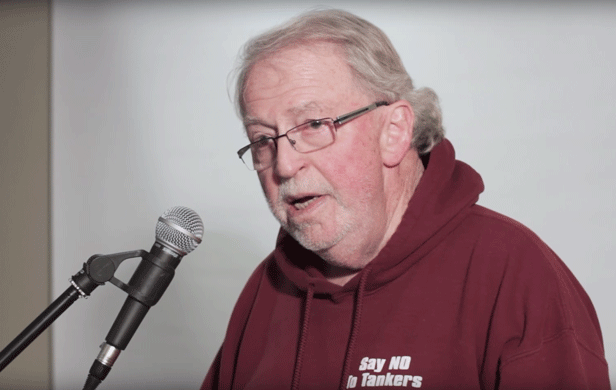
At The Common Sense Canadian, in addition to videos, articles and social media, we kept touring, which Rafe loved. I remember picking him up in Lions Bay for one of our first road trips together. The first order of business was plugging in his ipod (Rafe professed complete helplessness with all technology but curiously mastered the ipod). He hit play and out came the Gene Autry classic, “Back in the Saddle Again”. Rafe was rarely in great health in those days, but his spirits were high and he seemed reinvigorated in his new role. We traveled all around this great province, often driving for hours on end to packed halls in the Kootenays, the Okanagan, the Interior, Vancouver Island, you name it. The people came in droves to see Rafe. Everywhere we went, walking down Main Street – often to visit a book store as Rafe added to his massive library – people recognized him from his days in radio and voiced their admiration. It was remarkable what an institution Rafe had become, even in rural BC.
This all could have proved a tedious affair – the long drives, the motels, the fast food. Instead, they were some of the best days of my life. There was no question that we would listen to his music. If I had tried, say, to slip in a little hip-hop, I imagine I would have quickly found myself at the receiving end of one of his fancy wooden canes. And so we drove on, the voices of Ella Fitzgerald (his favourite), Billie Holiday and Louis Armstrong providing the soundtrack to our voyage.
And Rafe would talk. And talk. (I’ve been known to do a little of that myself too – so there was plenty of give and take). I was an eager student of whatever the topic of the day. Often it was BC political history – a blend of big events, from his time as environment minister to shooting down the Charlottetown Accord, and anecdotes about the misadventures of our elected officials in the 1970s, most not fit for publication. From World War II to baseball trivia, Rafe was a sheer fountain of knowledge. Sometimes he shared stories about his many, many trips to London – one of which led to a chance encounter with one Wendy Conway, to whom he would propose just four days later. Impulsive, perhaps, but he’d say it was the smartest thing he ever did. As I got to know Wendy, it became abundantly clear that it was.
Taking down Goliath
Rafe also shared some of his previous battles, including a few triumphs. One of his proudest achievements was killing Alcan’s Kemano Completion Project, which top DFO scientists, in a detailed study that was hidden from the public, concluded would be devastating to wild salmon in the Nechako and Fraser rivers. A friend and then-recently retired DFO scientist, Dr. Gordon Hartman, slipped Rafe a brown envelope containing the buried report. Armed with that, Rafe hammered away at the project for years, in barrister-like fashion, alongside Prince George stalwart journalist Ben Meisner.
Ironically, the day Rafe finally gave up on this crusade, he took Wendy out for dinner in Horseshoe Bay. As they were commiserating over what he thought to be a failed campaign, a TV news crew came running up to them. The way Rafe told it, as they caught their breath, they exclaimed, “Mr. Mair! We’ve been looking all over for you. We wanted to get your comment on Kemano.” Premier Harcourt had finally caved and pulled the plug on the project earlier that day. For his work on the subject, Rafe would win the Governor-General’s prestigious Michener Award for public service journalism (he would later add the Jack Webster Foundation’s Bruce Hutchison Lifetime Achievement Award and an induction into the Canadian Association of Broadcasters’ Hall of Fame).
Rafe used the Kemano story to illustrate why, as Churchill famously said, you “Never give in. Never, never, never, never…” You simply don’t know when you’re going to make that breakthrough. Wise words for those still fighting Kinder Morgan or Woodfibre LNG or open net pen salmon farms or Site C Dam – all unfinished campaigns that Rafe continued to work on, literally until his dying breath.
It was because of Kemano that the Terrace City Council actually voted to declare the town a “Rafe Mair-Free Zone”. I’m not making this up. They were hungry for the jobs they thought the project would provide (they’d later learn the hard way that local jobs were the furthest thing from the company’s mind – instead preferring to sell the power through the likes of Enron across the border). So we had some fun with that when we ventured up to Terrace to talk about private power projects and, later, pipelines and tankers – another dangerous idea staked on inflated local job promises. No, Rafe wasn’t arrested, though he would have proudly sacrificed himself in such a way, as he swore he was prepared to do.
Channelling your inner Rafe
We also attended many bogus environmental assessment meetings together – though Rafe would say he’d rather have a root canal without anaesthetic. There, I saw and documented firsthand his greatest gift. The government and industry organizers – working hand-in-hand – would try to control the process, tamping down public furor with bureaucratic procedures and dry presentations by the proponent. Rafe had no patience for that. He would grab hold of the microphone the first chance he got. In Powell River and Campbell River, he spoke before packed houses about General Electric’s proposed $5 Billion, 17-river Bute Inlet project and was chastised by the Canadian Environmental Assessment Agency lady for his foul language – but the crowds had a different reaction.
Once Rafe got his hands on the mic, the government and company would lose control. Rafe opened the floodgates to every otherwise timid granny or young person who’d never spoken in public, now suddenly emboldened. You could see them nodding along to Rafe’s rallying cry, clapping their hands, as if to say, “Yeah, what he said, damn it!” Rafe gave them all permission to release their inner firebrand, which they did, each getting up to the microphone and giving the powers that be a piece of their mind. So effectively that one-by-one, we killed multi-billion dollar projects – Bute Inlet, Upper Pitt River, Glacier-Howser in the Kootenays. Thanks to the Campbell/Clark Liberal government, we BC Hydro ratepayers have inherited $58 Billion worth of rip-off private power projects and dozens of damaged rivers. The problem would have been twice as bad were it not for the efforts of Rafe and his allies.
So great was Rafe and co.’s impact on these environmental assessments that our governments actually changed the environmental assessment process. Gone are these big townhalls with an open microphone and bully pulpit – replaced by “open houses” with people in green polo shirts, armed with clipboards, shiny pamphlets, tea and cookies, happy to “manage” your concerns.
Speaking truth to Brian Burke
During our time together, Rafe would also recount many stories from his days in radio. He revered CKNW owner Frank Griffiths, who always had his star broadcaster’s back, even when Rafe slagged the station’s big sponsors, like McDonalds or the Canucks. On the occasions Rafe spoke ill of the latter, management would be sure to get an angry phone call from then-GM Brian Burke, demanding Rafe apologize on air. Rafe would then get the predictable call from the sales director, hoping against hope that Rafe would throw him a bone and patch things up. But they all knew there was a snowball’s chance in hell of that happening. Rafe Mair didn’t kowtow to anyone, nor did he have to. Old Frank Sr. would tell his sales people, “If you can’t sell advertising with Rafe’s numbers, you’re in the wrong business.”
Well, the Griffiths family sold ‘NW to the Shaws and their Corus Radio behemoth and Rafe’s days were numbered. With him went the last of the golden era of Vancouver talk radio. If you want to understand this fascinating phenomenon which influenced media around North America, check out George Orr’s documentary, Talk!
But this was just a microcosm of a larger shift in journalism, which Rafe often lamented in these pages and in our conversations. This culminated in our largest newspaper chain, Postmedia, signing a five million-dollar deal to provide editorial and journalistic content to the oil and gas lobby.
The Ryerson story
One Rafe Mair story perfectly encapsulates this shift in the Canadian media landscape. Some fifteen years ago, he was approached by the editor of Ryerson School of Journalism’s annual review to pen its feature column. As Rafe told it, he happily agreed and soon thereafter submitted his piece, the thesis of which was essentially: As you idealistic, young grads go out into the world of journalism, you will inevitably find yourselves being censored or you will feel the pressure to self-censor to protect your career.
Weeks went by and Rafe heard nothing back, until, finally, a note came informing him that his column was “unacceptable” – but not for a lack of quality. “Unacceptable to whom? And why?” Rafe asked. They wouldn’t say, but they did offer him two options: 1. He could take a hundred dollars in compensation for his unappreciated efforts; 2. He could submit a new piece on a different topic. “There’s a third option,” Rafe replied. “You can all go fuck yourselves.”
A decade or so later, following his retirement, another Ryerson journalism student approached Rafe, wanting to interview him about “the greatest disappointment of his career in journalism.” Rafe agreed, but before the appointed interview, the student emailed him for a preview of his response. Rafe wrote back that the greatest disappointment of his career was the time Ryerson University spiked his column. You can probably guess what happened next.
A man of many contradictions
The better I got to know Rafe, one of the big things that struck me was the contradictions he embodied. We’re all complicated people, but he more than most. He called wild salmon “the soul of this province,” and he’d fight for them to the ends of the earth – but he couldn’t stomach a bite of the stuff.
A former lawyer, he was likely the most sued journalist in Canadian history, winning a landmark battle at the Supreme Court of Canada which increased the protection of free speech against defamation suits. Our friends at the Wilderness Committee leaned on this precedent to stave off a SLAPP suit by Taseko mines over Fish Lake. Another pal of Rafe and mine, anti-salmon farm campaigner Don Staniford, also found Simpson v. Mair very useful in his own defence against a defamation case.
Rafe was a masterful public speaker, but surprisingly insecure. Every evening before a show, he’d nervously go over his notes, striking out a line, then putting it back, questioning his tack, wondering if his legs would carry him to the podium. He’d bring the house down, then, to my bewilderment and disagreement, apologize to me for fucking everything up.
He was as tough as they came, but a deeply caring, sensitive man. Seven decades after attending St. George’s Private School, he still spoke out about the horrors of corporal punishment on his young classmates. He offered open mea culpas about his family receiving the benefits of business assets “stolen” (his words) from interned Japanese Canadians. He was one of the first public figures to speak openly about his own depression, shedding light on mental health issues in the workplace at a time when that was still very much taboo. People like fellow broadcaster John McComb have acknowledged just how helpful this was to them.
He loved his chocolate labs (and chocolate bars – but don’t tell Wendy I let him have any on our road trips). He became a big bowl of mush whenever they sought his affection. I can see him now, in a better place, tossing a ball to Chauncy and Clancy.
Bombastic? Cantankerous? Sure, to people who crossed him – and they mostly deserved it. But I witnessed his kindness to strangers, always taking time to listen to their concerns and share a moment with them. He spoke everyday of his love for Wendy. He was proud of his children and absolutely loved his grandchildren and growing brood of great grandchildren. He could gush, telling me how proud he was of me or how much he valued our friendship. I wish I was half as expressive in return – but such words didn’t come as easily to me.
Giving up fishing
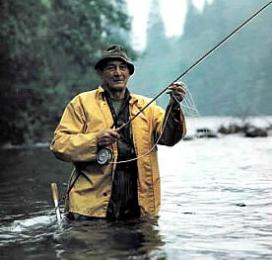
One of his most interesting contradictions came about later in life. He loved fly fishing and regaled me with stories of his trips to New Zealand, whose rivers he valued second only to those in BC which we drove by on our trips. He wrote a number of books on the subject and one of my favourite experiences with him was taking him to see the old home of Roderick Haig-Brown, the famous fisherman, author and conservationist, in my hometown of Campbell River. Haig-Brown is a legend, both locally and far afield – but Rafe was a particularly big fan.
We were in town for a show and had some time to kill, but it was winter and the house wasn’t open to the public. We drove up anyway and knocked on the door, to no avail. Just as we were walking back to the car, the husband of the writer-in-residence who was living and working there at the time opened the door and overheard us talking. “Is that Rafe Mair?” he yelled after us. “I recognized your voice. I loved your show! Come on in!”
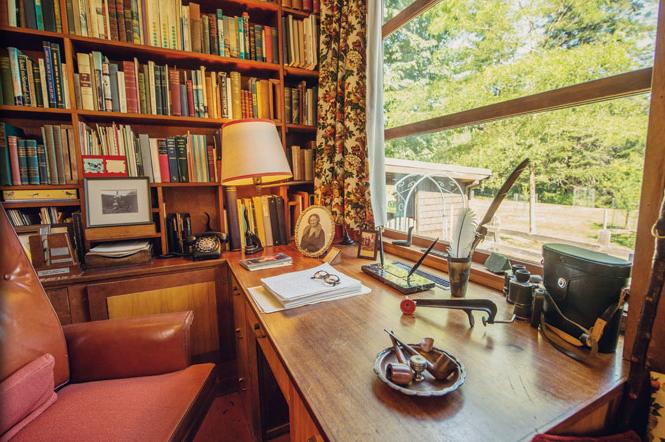
We stepped into the post-and-beam study overlooking the river, which is perfectly preserved, right down to the pipe on the desk, the smell of old tobacco and leather book jackets perfuming the air. I looked at Rafe and he was having what seemed a religious experience. This was the dean of fly fishing and conservation philosophy, and I don’t think it’s a stretch to see Rafe as heir to that legacy.
And yet, a few years back, Rafe had given up fly fishing, one of his great loves. As we drove on, he described his epiphany: One day he had a fish on the line – I don’t recall if it was a rainbow or dolly or bull trout – but another fish swam up beside it, as if to show sympathy to his captured pal. Of course, the captured fish was due to be released, but Rafe had been reading about low survival rates from catch-and-release, and that was the last straw. “Damn if those fish don’t have feelings!” he exclaimed. Away went the rod for good and he wrote a book called The Last Cast.
“I used to hate Rafe Mair”
Rafe always said he didn’t change much – it was the media and politics that changed around him. But clearly he did evolve, and not just in the area of fly fishing. “With First Nations, there’s no question I’ve changed,” he conceded. This was evident on the evening of his 80th Birthday Roast, which I organized with Rafe’s longtime producer and dear friend Shiral Tobin nearly 6 years ago. Grand Chief Stewart Phillip, president of the Union of BC Indian Chiefs, explained that in his days as a young, long-haired native rights activist, listening to the radio, “I pretty much have to say I hated Rafe Mair. I couldn’t stand hearing that voice and those opinions,” but later clarifying:
[quote]We’ve seen an incredible transformation take place with respect to Rafe Mair. He has marched with us, he’s walked with us, he’s stood with us, he’s spoken out on all of the issues that are important to our people.[/quote]
Flanked by his Vice-President Bob Chamberlin and Secretary-Treasurer Marilyn Baptiste, Chief Phillip noted that this was the first time to his knowledge that the UBCIC’s full executive had ever come out to such an occasion to honour someone in this way.
In recent years, Rafe grew too ill to hit the road, and our literal journeys came to an end. But his mind and pen remained sharp, as a wander through the archives of The Common Sense Canadian will prove. At Rafe’s 80th, he was presented with a beautiful wooden walking stick, hand carved by the DFO scientist who helped him bring down the Kemano Completion Project, Dr. Gordon Hartman. It told the story of Rafe’s life – the battles he’d fought, some lost, but a surprising number won in the face of great odds. Six years later, that cane merits a half-dozen new etchings and a few more only partly finished – the battles left for others to carry on, perhaps with Rafe’s words of encouragement echoing in their ears.
Rafe Mair personified BC. He loved it, lived it, changed with it…and changed it.
Me, I was lucky to be along for the ride.
Happy trails, partner.
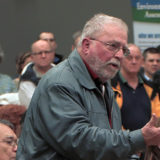


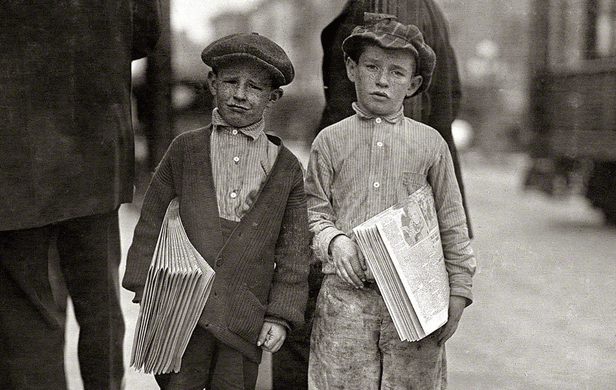
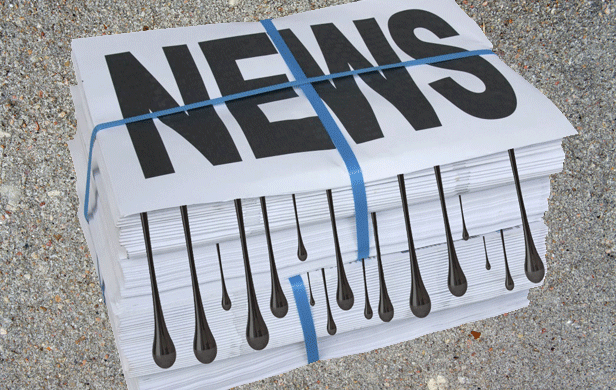 The largest Canadian newspaper chain, Postmedia, has a
The largest Canadian newspaper chain, Postmedia, has a 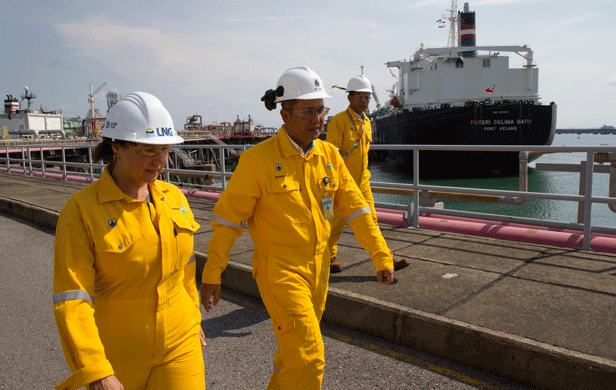
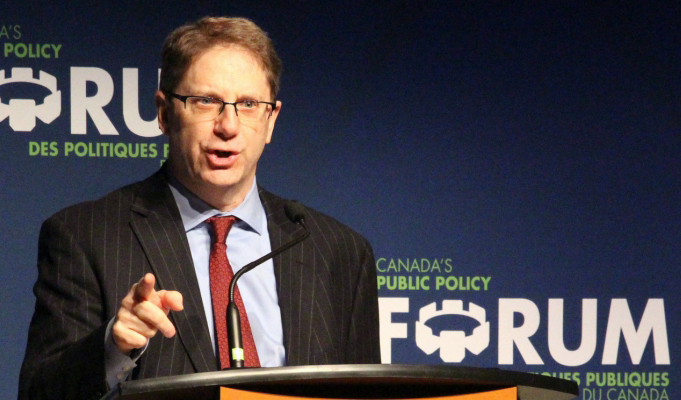
 Let me close with joining dots between the Public Policy Forum and Kinder Morgan. Do you wonder what their position would be had this BC controversy been referred to PPF? Here’s one of their projects – billed
Let me close with joining dots between the Public Policy Forum and Kinder Morgan. Do you wonder what their position would be had this BC controversy been referred to PPF? Here’s one of their projects – billed 
